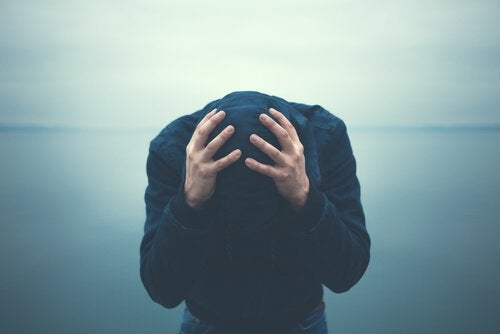It happens all of a sudden. You realize your heart is beating fast. All the alarms are on. What’s happening to me?, I’m dying Panic invades you and you start breathing faster and faster. Do you feel like you’re running out of air?I’m still shaking!
The oppression in your chest gets worse and you feel that what’s going on isn’t real, but the fear of dying is there, you think you’re going crazy. Looks like you’re going to pass out. In just 10 minutes, your body is completely out of control. What happened to you? You had a panic attack, but what are the consequences?
- ? Hands tremble and tremble.
- Somewhere a prey breaks and the cold sweat floods you.
- Your body permeates you.
- You want to scream.
- And I would if I could.
- But to scream you have to breathe.
- Panic.
- ? -Khaled Hosseini-.
A panic attack is a crisis that starts suddenly, the first thing the person perceives is the appearance of a series of bodily sensations that usually are: rapid palpitations or heartbeats, sweating, tremors or restlessness, shortness of breath and/or feeling choking, chest cramping, nausea or abdominal discomfort, instability or dizziness, numbness or tingling and chills.
The problem grows thanks to the thoughts that the person reproduces in his mind and around these physical symptoms, the panic attack occurs because the person associates his bodily sensations with some kind of threat, in addition, he usually realizes that this induced threat is in this way, develops a whole cycle of thoughts (in this sense) that will make the initial bodily sensations even more intense.
These are the fear of dying, losing control and/or going crazy, besides feeling unreal or being out of oneself, the truth is that people interpret these physical symptoms catastrophically, that is, they believe that these bodily sensations happen by something Serious happens It is essential to point out that in reality there is no real danger of death, the truth is that all this is happening because we are thinking.
“It was in this feeling that madness began. During the brief moments when you managed to ward off panic and think clearly, did you try to capture everything that seemed to have to do with reality?-Henning Mankell-
Panic attacks have negative consequences for those who suffer from them, but in no case cause death, at least not directly. Think about it: did you really have anything physically serious when you had a seizure with these characteristics?Not right? If they really had the consequences we feared, you wouldn’t be reading this article!
“I wanted to scream, but the panic rodents ripped off his tongue. He wanted to run, but the thin flying snakes tied his legs. -Luis Sep-lveda-
Luis Sep-lveda’s words have a dose of black humor, but they still give us a accurate description of the feelings of “panic victims. “In addition, we all know that these panic attacks cause great emotional and psychological discomfort. permeates the daily lives of these people.
There is a fear that it will have a crisis again, because it is not pleasant, in many cases the stimuli generated by the crisis are widespread (for example, if we had an attack at a bus stop, we are afraid of all bus stops), and in many other cases, the anticipation of the crisis itself is already causing the attack (we expect us to pass through a bus stop).
Above all, the person fears that aggression will appear in public places, where it is difficult to escape, in social situations where it would be shameful to be like this, or at times when it would be difficult to get help. Does the person usually start doing it in these cases? What he usually does is avoid these situations.
The person stops going to these places so that, in this way, the anxiety generated by the possibility of having another seizure is reduced, so he avoids more and more places. In this way, everyday tasks become a real exercise in planning and effort, it is extremely difficult for a person to go to the places he used to go, so the range of activities he ends up doing is very limited.
In this case we get to the point where the person begins to suffer from agoraphobia, already fears or avoids situations such as crowds, public places, traveling alone or being away from home, this is very debilitating for people who see their quality of life. reduced life in all areas. As this can be limiting on a personal, professional and social level, it is important to consult a psychologist to learn how to regulate anxiety and reduce panic attacks.
Images courtesy of Cristian Newman, Christopher Campbell and Isai Ramos.

